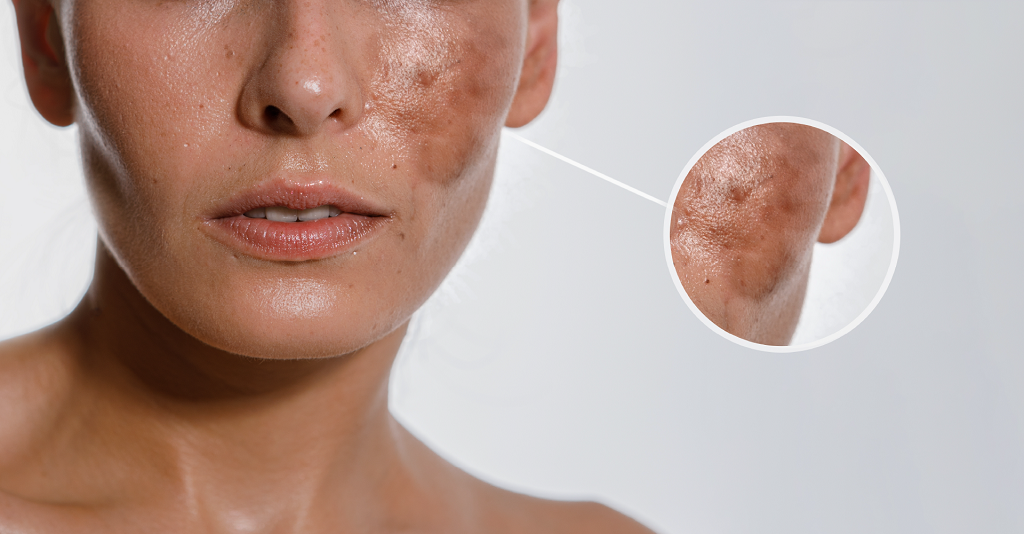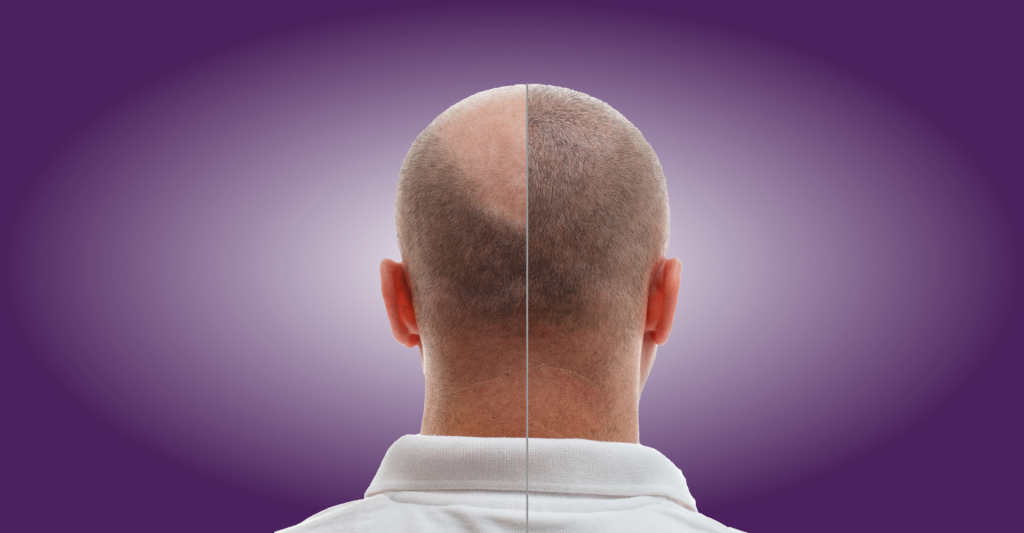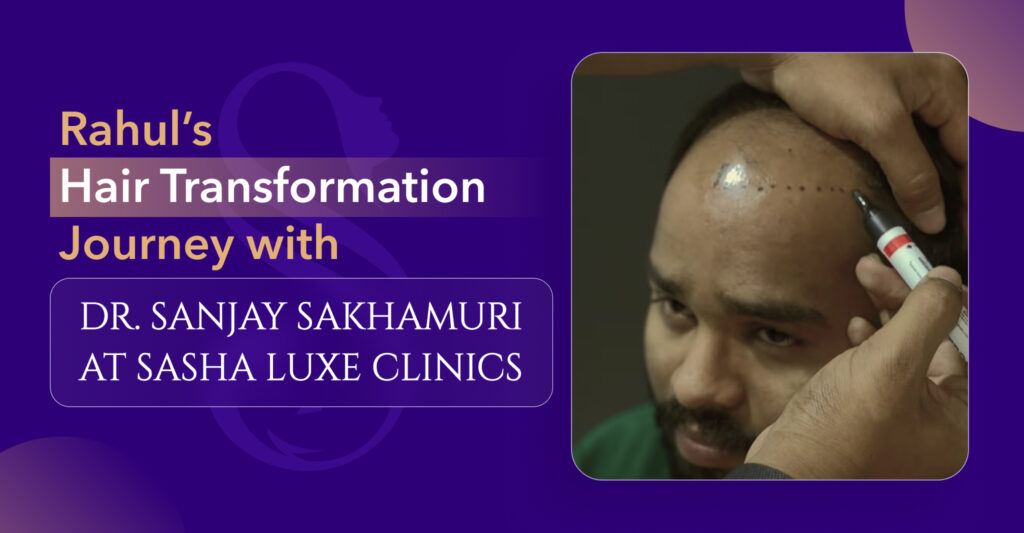Acne and hyperpigmentation scars can typically stay long, which can be irritating and distressing. If a pimple must exist, it should at least leave you alone. However, hyperpigmentation acne often takes more attention and time to resolve. If you want to understand more about acne hyperpigmentation, you’ll know how and when those spots will erase at the end of this article. Continue reading to learn more.
The natural pigmentation of your skin, or the generation of melanin, is the defense mechanism that occurs when your skin is traumatized. Skin trauma can take many forms, including a cut, a scrape, or any other wound that develops on the skin’s surface, such as sun exposure. As a result of the trauma, the skin retaliates by stimulating melanin-producing skin cells, known as melanocytes, to protect itself from additional harm. When these cells are triggered, they migrate to the skin’s surface, resulting in regions of darkened skin, black spots, sunspots, darker pigments, and discoloration. To put it another way, hyperpigmentation.
The natural pigmentation of your skin, or the generation of melanin, is the defense mechanism that occurs when your skin is traumatized. Skin trauma can take many forms, including a cut, a scrape, or any other wound that develops on the skin’s surface, such as sun exposure. As a result of the trauma, the skin retaliates by stimulating melanin-producing skin cells, known as melanocytes, to protect itself from additional harm. When these cells are triggered, they migrate to the skin’s surface, resulting in regions of darkened skin, black spots, sunspots, darker pigments, and discoloration. To put it another way, hyperpigmentation.
Acne, blemishes, pimples, and various skin disorders like eczema frequently cause inflammation. As a result of the inflammation caused by acne, hyperpigmentation appears on the skin. It is one of the various methods by which your skin recovers from wounds. Acne hyperpigmentation typically affects both men and women of all skin types, particularly those prone to acne. These darker patches can develop in brown, red, or pink, appearing everywhere on the body, not just the face. Post-acne hyperpigmentation (PAH) is another term for post-inflammatory hyperpigmentation (PIH). It is frequently more irritating than pimples.
Hyperpigmentation Vs. Acne Scars
Acne scarring occurs when the texture of the skin changes. The surface remains unchanged when it comes to hyperpigmentation. However, the color darkens. In either case, active acne should be treated as soon as possible to prevent hyperpigmentation from forming since, as previously said, melanin begins to be stored on the top layer of the skin to act as a protective covering for your pimple.
When there is a physical change in the skin’s texture, an acne scar forms; post-acne hyperpigmentation, unlike acne scarring, is a type of skin pigmentation that does not damage the skin’s surface.
Why Does Hyperpigmentation Occur After Acne?
Acne hyperpigmentation spots appear near the conclusion of the healing phase or after the acne blemish has healed. Blackheads and whiteheads do not ‘heal.’ Instead, the dead skin and oil are removed, and the pore returns to normal. Cysts and pimples, on the other hand, need to be treated. This is where hyperpigmentation comes into play.
The wound releases Certain chemicals that pass through the bloodstream, starting the healing process and causing inflammation. These substances activate the pigment-producing cells in the skin. Both scientists and physicians believe that inflammation is a significant factor in hyperpigmentation. However, there is much more to learn about what causes hyperpigmentation acne.
While most post-acne spots and hyperpigmentation are safe, do not attempt to identify a dark spot alone. Most sites appear to be ordinary, but some can be more. If you observe changes in an existing spot, you should have it examined by a dermatologist or physician.
How Do You Treat Acne Hyperpigmentation?
No treatment can eliminate acne-related hyperpigmentation overnight. In reality, you must first cure your acne before tackling pigmentation. The good news is that these dark stains will gradually fade and disappear with the appropriate approach. Here are a few things you may do to hasten your recovery.
Use Sunscreen
While the sun does not cause post-inflammatory hyperpigmentation acne, it can increase symptoms, darken afflicted areas, and lengthen the fade time. A few acne hyperpigmentation treatments, including sun protection, can help with the pigmentation. Treating hyperpigmentation and protecting your skin from the sun go hand in hand. Pigmentation might worsen with sun exposure. As a result, you must protect your skin while you repair it.
Use Anti-Inflammatory Skincare Regularly
Inflammation is your body’s normal healing response, whether you have hyperpigmentation due to acne, dermatitis, or eczema. This healing reaction is critical. However, it is sometimes called upon when it is not required due to disorders such as acne. Chronic inflammation can cause hyperpigmentation in the skin. The best strategy to treat acne-related hyperpigmentation is to incorporate anti-inflammatory skincare products into your routine.
Micro-needling
Micro-needling is a technique that includes inflicting a succession of micro-injuries on your skin with a stainless-steel roller covered with multiple small spokes. This forces your skin to create new and healthy collagen and elastin, resulting in skin reformation.
Peels with Chemicals
Chemical peels are exfoliating treatments that help remove dead and discolored skin cells from the skin’s top layers. This reduces dullness and allows your skin to reflect light more effectively, resulting in a perceptible glow.
Takeaway
It’s important to note that not all acne lesions lead to hyperpigmentation, and the severity of hyperpigmentation can vary from person to person. Preventing hyperpigmentation involves managing acne properly and avoiding picking, squeezing, or excessively touching the acne lesions, as this can worsen inflammation and increase the risk of scarring and pigmentation issues.
Various treatments are available to address hyperpigmentation caused by acne, including topical creams containing ingredients like hydroquinone, retinoids, vitamin C, and alpha hydroxy acids. Additionally, sunscreen is crucial as it helps protect the skin from UV radiation, which can worsen hyperpigmentation and delay healing.
If you’re concerned about acne-related hyperpigmentation, it’s recommended to consult with a dermatologist who can provide personalized advice and recommend appropriate treatments based on your skin type and condition. At Sasha Luxe, we offer the best acne pigmentation treatment in Hyderabad.













